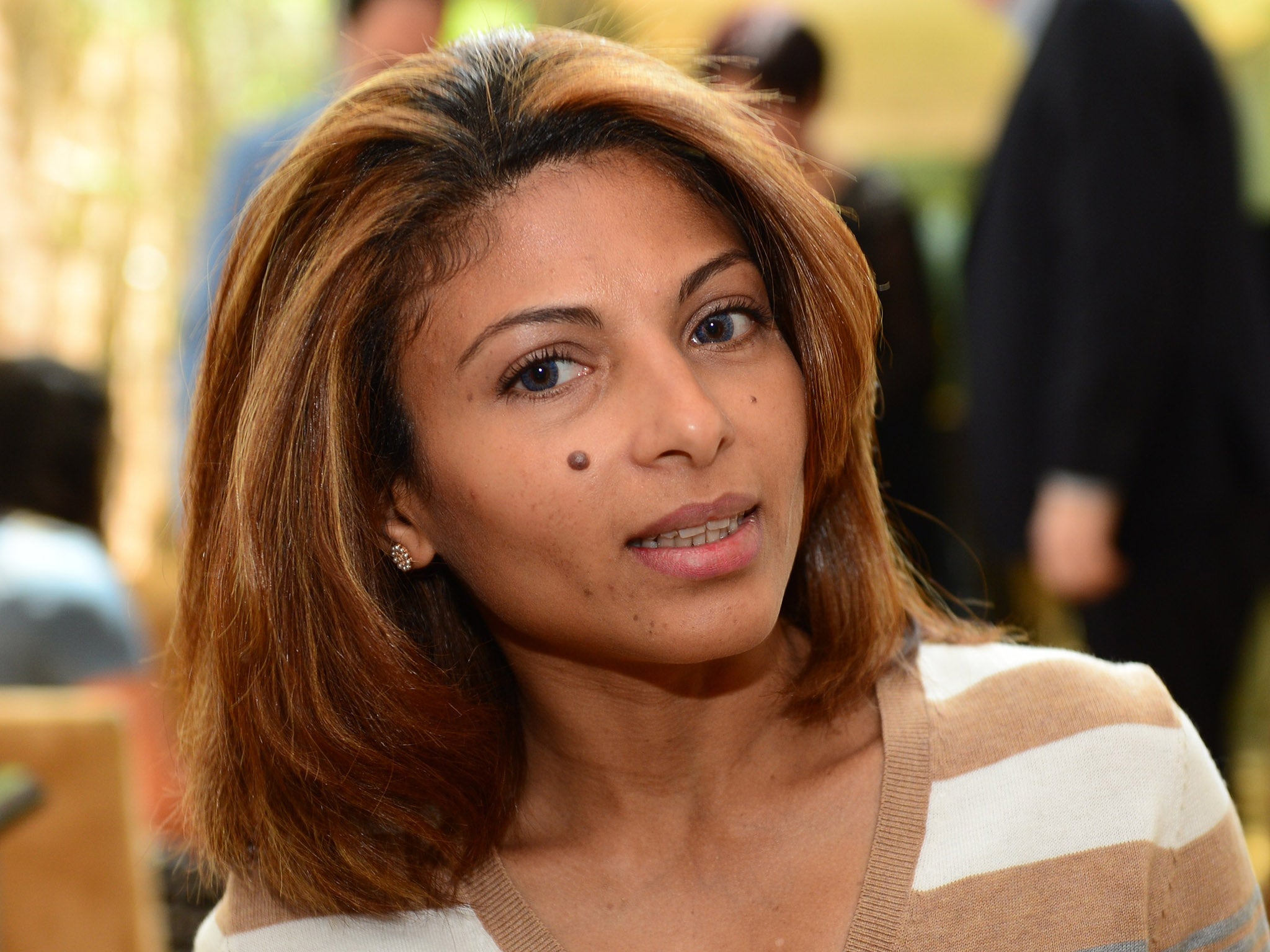Raif Badawi: Wife of Saudi blogger launches campaign to free African writer on death row for criticising prophet Mohamed
Exclusive: Mohamed Cheikh Ould Mkhaitir was arrested in January last year

Your support helps us to tell the story
From reproductive rights to climate change to Big Tech, The Independent is on the ground when the story is developing. Whether it's investigating the financials of Elon Musk's pro-Trump PAC or producing our latest documentary, 'The A Word', which shines a light on the American women fighting for reproductive rights, we know how important it is to parse out the facts from the messaging.
At such a critical moment in US history, we need reporters on the ground. Your donation allows us to keep sending journalists to speak to both sides of the story.
The Independent is trusted by Americans across the entire political spectrum. And unlike many other quality news outlets, we choose not to lock Americans out of our reporting and analysis with paywalls. We believe quality journalism should be available to everyone, paid for by those who can afford it.
Your support makes all the difference.The wife of Raif Badawi, the Saudi blogger sentenced to ten years in jail and 1,000 lashes for insulting Islam, has launched a campaign to free an African writer who is on death row in Mauritania for criticising the prophet Mohamed.
In an article for The Independent, Ensaf Haider said that while “millions of people around the world” had campaigned for her husband’s release, the case of Mohamed Cheikh Ould Mkhaitir risked being forgotten by the international community.
The 30-year-old journalist was arrested in January last year after publishing an article on the website of the newspaper Aqlame. In it, he criticised the Mauritanian caste system and said that certain social groups were being marginalised because of their religion.
Mr Mkhaitir later “repented” during a pre-trial hearing at a military police station and again during his trial in December last year, telling a court in the city of Nouadhibou he had not meant to insult Islam but intended to denounce those who used religion to belittle others.
Despite Mauritanian law stating that leniency must be shown if a defendant repents, the judge convicted him of having “lack of respect for the prophet” and handed down a death sentence – the first imposed in Mauritania for apostasy since the country gained independence in 1960.
Ms Haider, who has led the international campaign for her husband’s release, said Mr Mkhaitir “could be executed at any time” if pressure was not placed on the Mauritanian government to reconsider his sentence.
“Millions of people around the world rallied to the support of Raif Badawi; who will care for a poor young man in Mauritania?” she wrote. “He will be executed for blasphemy – by those who insist that Isis does not represent Islam.”
Dozens of human rights organisations signed a joint statement in March calling for Mr Mkhaitir to be freed, describing him as “a prisoner of conscience who has not committed any crime but was merely peacefully exercising his right to freedom of thought, conscience, expression and religion”.
However, there have since been no updates on his case. His lawyer told Mauritanian television earlier this year that his condition in prison was “miserable” and that he had been tortured and placed in solitary confinement, Ms Haider said.
Gaetan Mootoo, Amnesty International’s West Africa researcher, said: “The use of the death penalty is always abhorrent, but it raises additional concerns in cases like that of Mohamed Cheikh Ould Mkhaitir where a dubious law is being used to stifle free speech.
“Mohamed Cheikh’s trial was blatantly flawed and his repentance – which should have entitled him to leniency – was twice ignored by the authorities. We continue to call for his immediate and unconditional release.”
The writer’s case has numerous parallels with that of Mr Badawi, who was arrested in June 2012 over material published on his Saudi Arabian Liberals website. While he has been in prison, the 31-year-old activist has received a number of awards for promoting freedom of expression and has been nominated for the Nobel Peace Prize.
Mr Badawi has so far only received one round of 50 lashes, which are supposed to be carried out weekly. Earlier this month his family learned that the kingdom’s Supreme Court is reviewing his case, raising the possibility that his draconian sentence may be reduced – but Ms Haider says “the flogging could still happen at any time”.